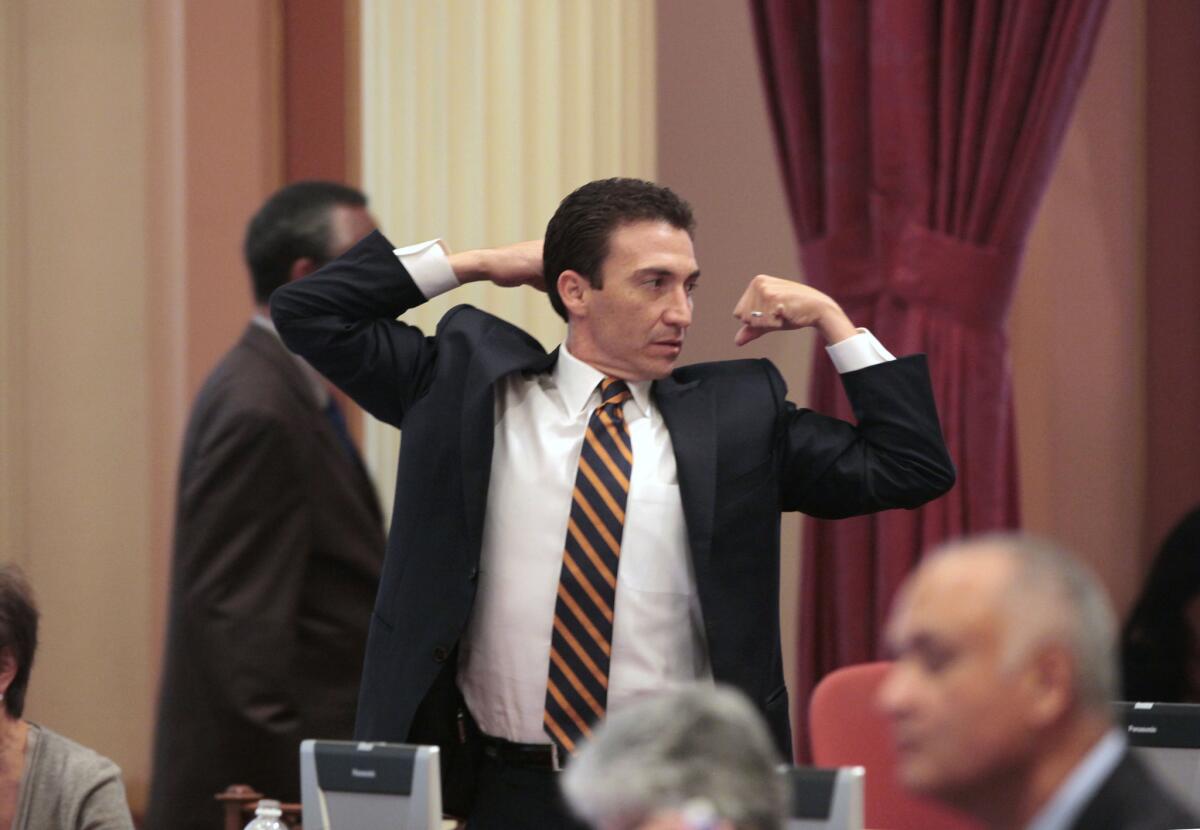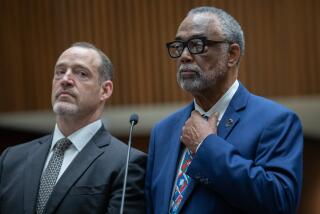Ex-state Sen. Michael Rubio fined for not reporting home sale

SACRAMENTO -- Former state Sen. Michael Rubio (D-Shafter) has agreed to pay a $200 fine to the state ethics agency for failing to properly disclose that he sold his house in Bakersfield to an oil company executive who had lent him hundreds of thousands of dollars while in office.
However, investigators for the state Fair Political Practices Commission concluded his business transactions with Majid Mojibi, the president of San Joaquin Refining Co., did not violate gift limits.
Rubio resigned abruptly from the Senate in February to take a job with Chevron Corp. as head of its government affairs office in the state.
The commission issued an advisory letter Monday “to guide your future conduct,” but noted “there is insufficient evidence to find that you violated the [Political Reform] Act with respect to receipt of possible gifts over the limit,” according to the document signed by Adrianne Korchmaros, a political reform consultant for the FPPC’s Enforcement Division.
A separate firm run by Mojibi, DCM Asset Management LLC, bought Rubio’s Bakersfield home for $185,000 in a short sale in 2011. The price was $40,000 above the home’s assessed value, according to county records. Rubio paid $270,000 for the house in 2004.
The decision ordering the $200 fine said it was for “failure to timely disclose the buyer of the property.”
The decision disappointed Phillip Ung, an advocate for California Common Cause. “This fine appears to be a slap on the wrist for what could have potentially been a major violation,” Ung said. “The reasons for why Mr. Rubio failed disclose this income is not explained in the letter, so some questions are still left unanswered.”
Investigators looked at whether the Bakersfield home had been bought from Rubio at an inflated price because of his position as a public official. “However, you provided documentation to establish that the property was purchased at the fair market value of its price at the time and that the resulting payment would be considered to be income under the Act rather than a gift,” Korchmaros wrote to Rubio.
The agency also looked at the loan Rubio received from Mojibi’s firm to buy an El Dorado Hills home and determined the company provides real estate loans to others as well and it charged Rubio a 6% interest rate, “which is higher than a market rate for a typical mortgage.”
The investigators also determined that Rubio’s $3,000-per-month rent of the home was also market rate, so it was not a gift.
“Because the transactions between you and DCM were commercial transactions conducted on terms available to the general public without being apparently specifically designed to provide personal benefit to you, neither the gift limit nor the gift disclosure requirements of the Act will apply,” Korchmaros concluded.
ALSO:
California may go forward without a financial reserve
California tax revenue yields multibillion-dollar surplus
Proposition 30 win no is guarantee of fiscal safety for California
More to Read
Get the L.A. Times Politics newsletter
Deeply reported insights into legislation, politics and policy from Sacramento, Washington and beyond. In your inbox three times per week.
You may occasionally receive promotional content from the Los Angeles Times.







